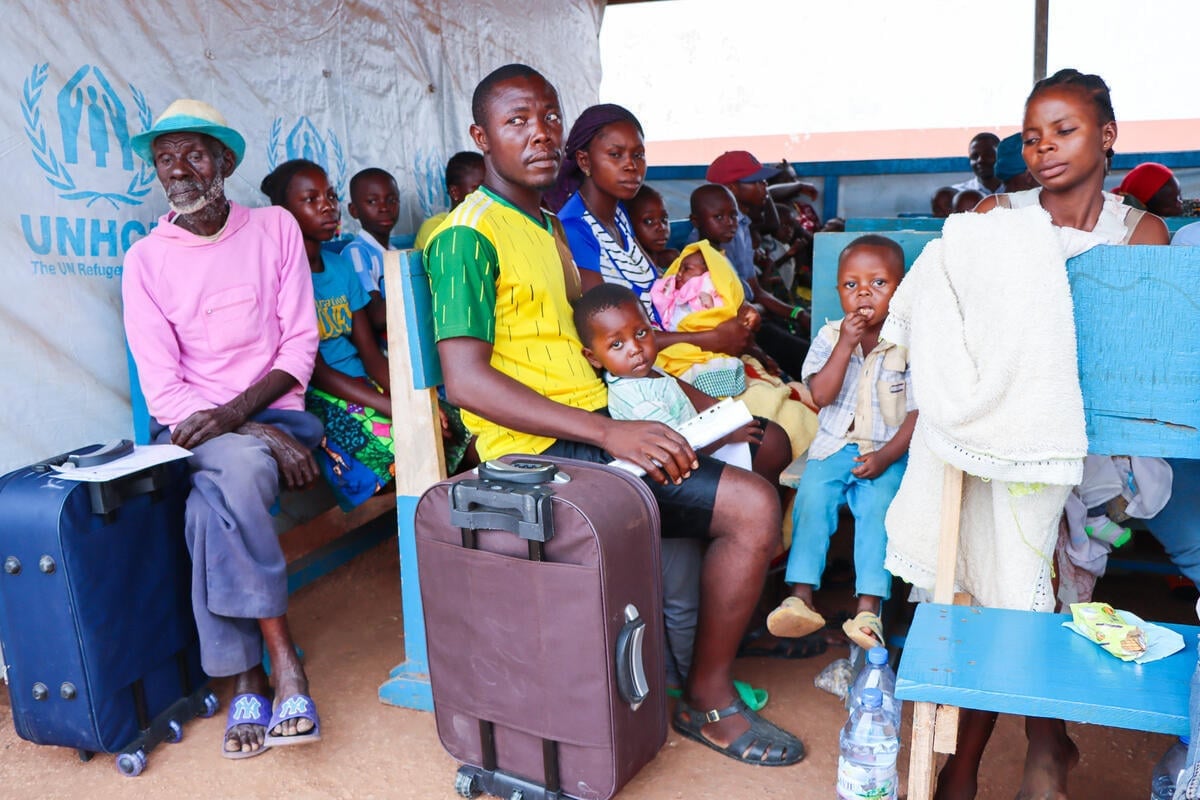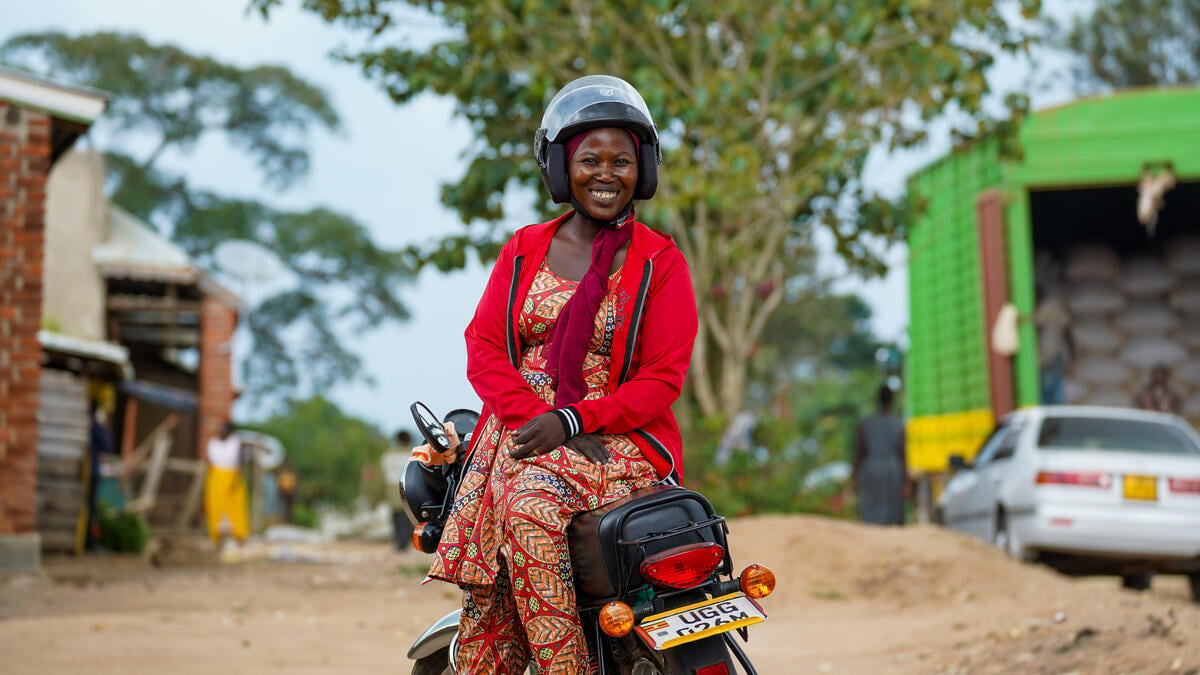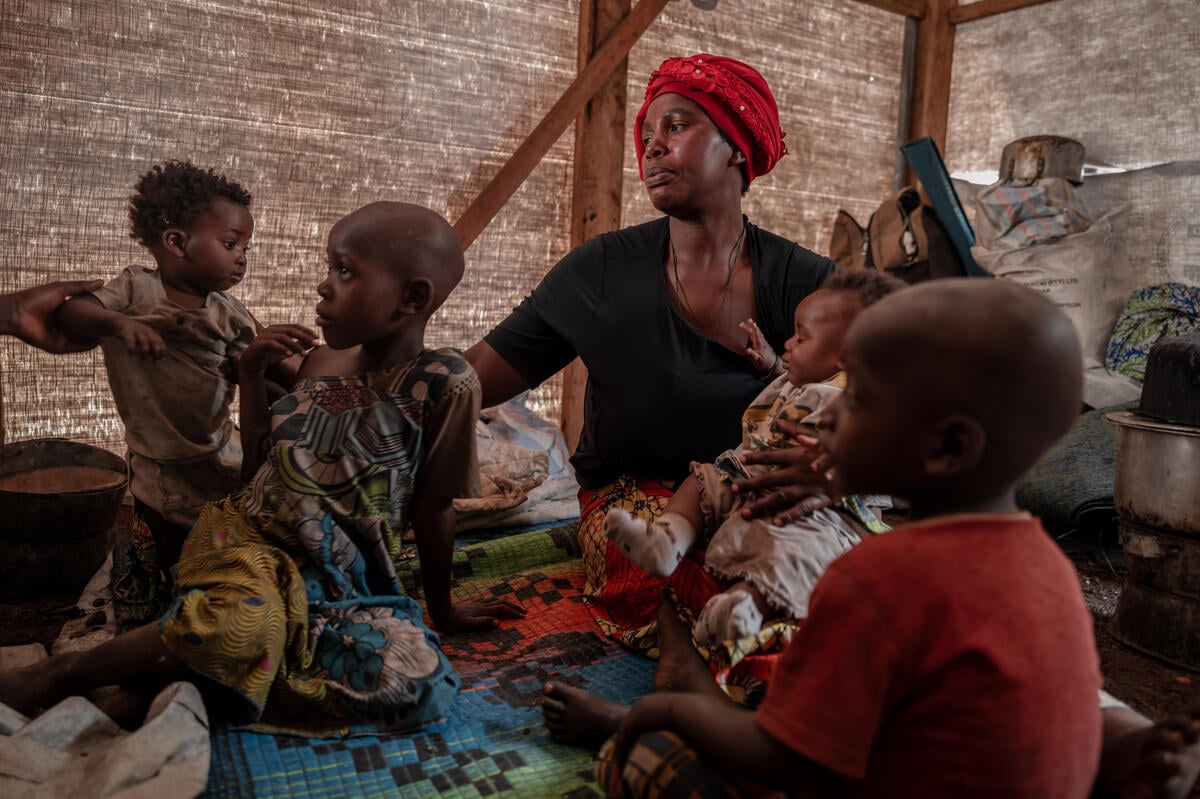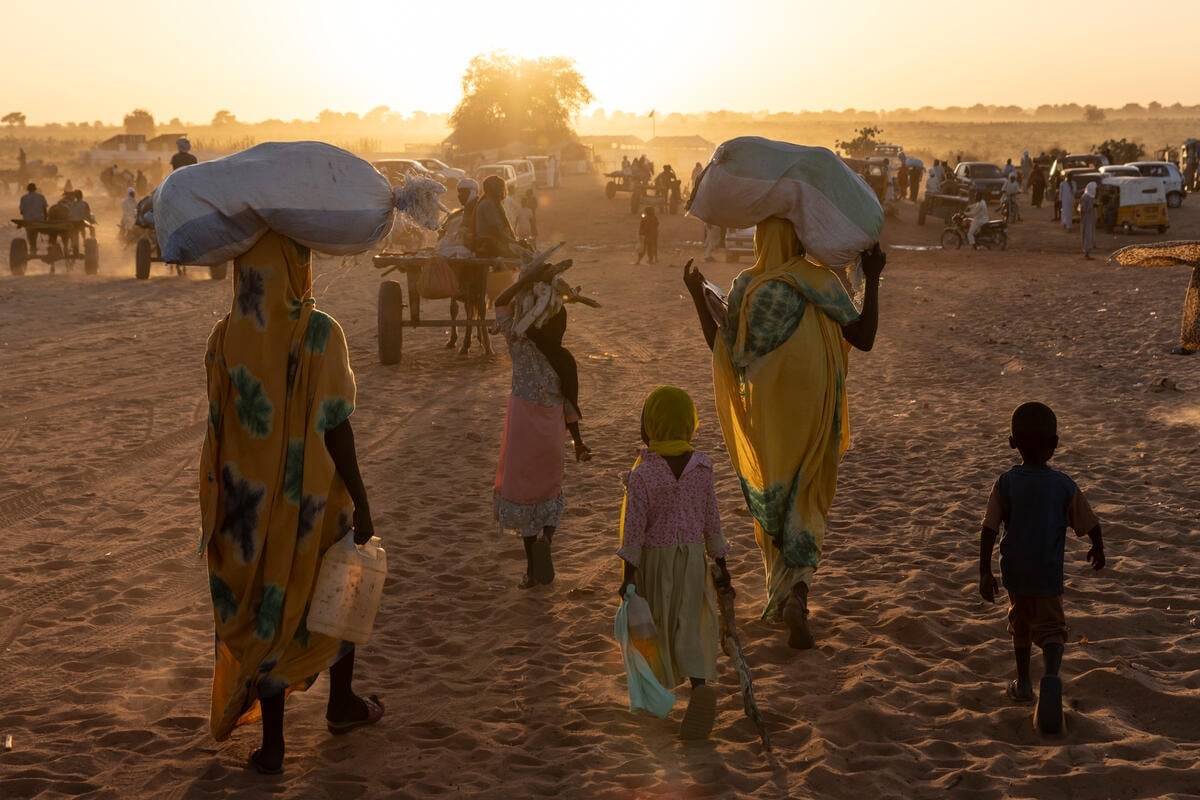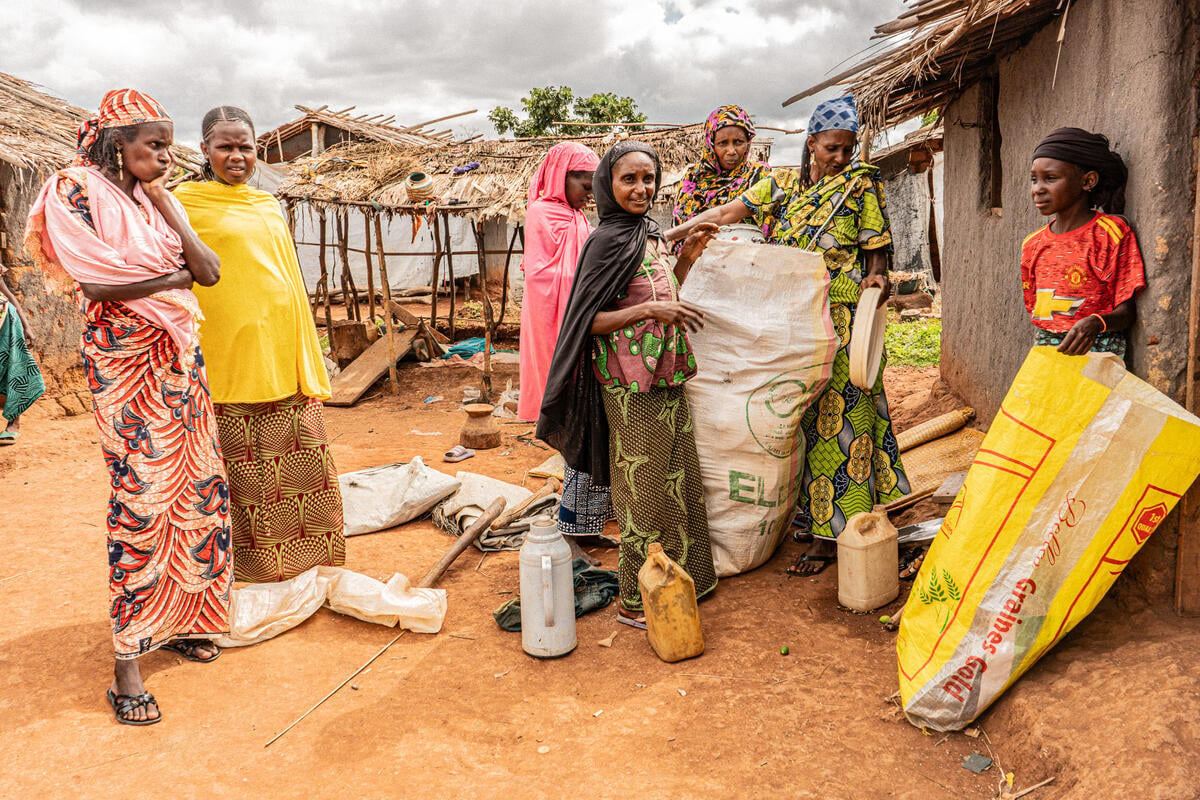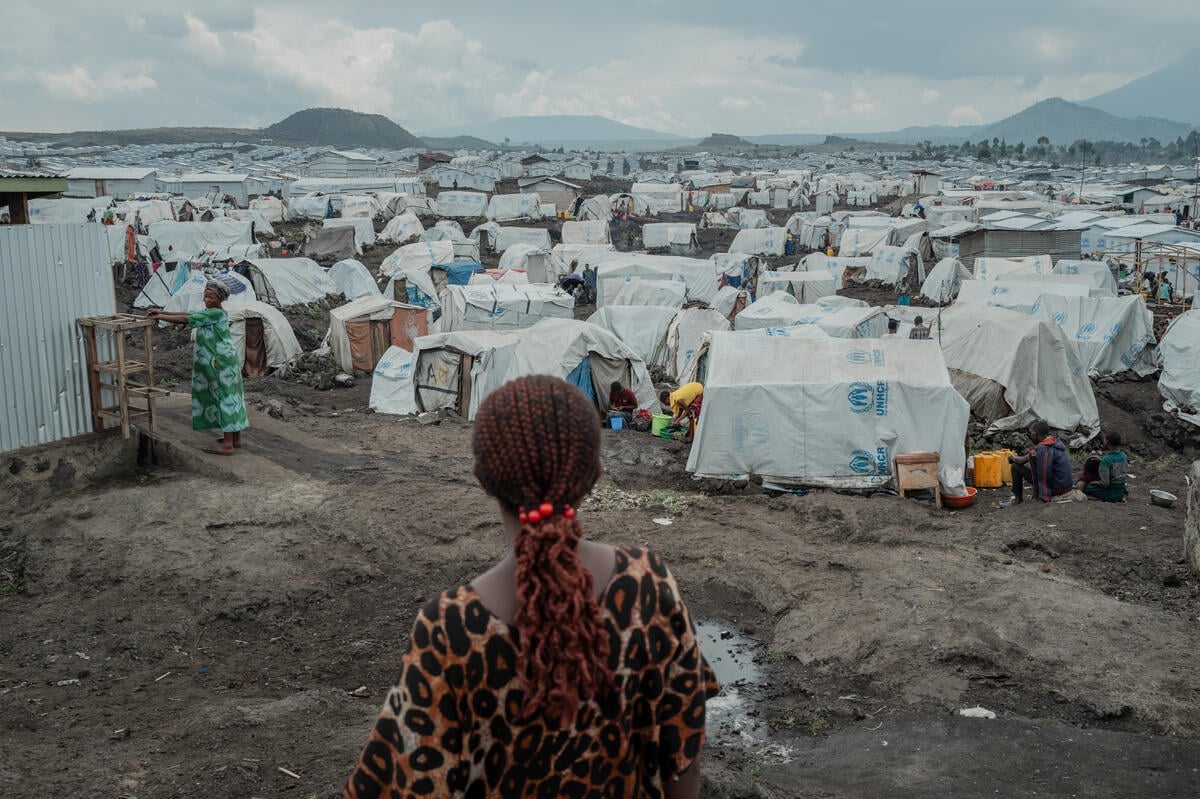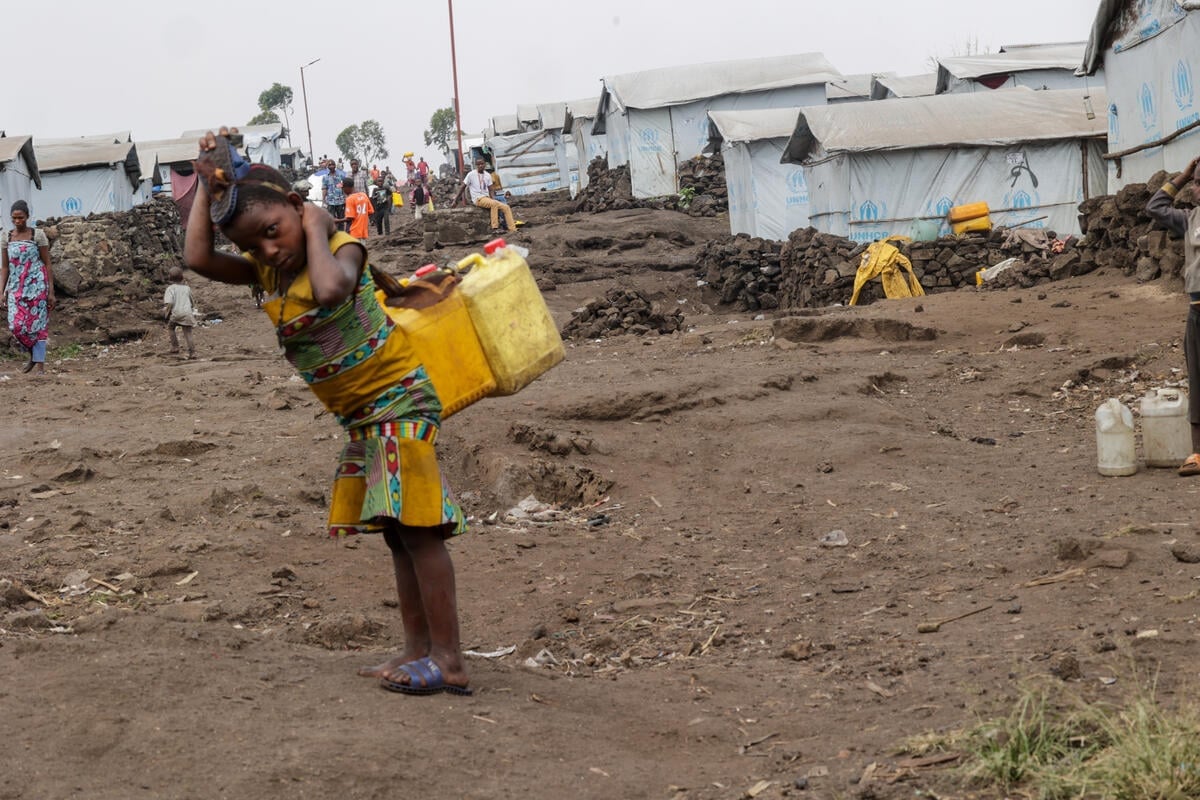Long-awaited transfer of Central African refugees in Congo begins
Long-awaited transfer of Central African refugees in Congo begins
ZONGO, Democratic Republic of the Congo, Jan. 9 (UNHCR) - The long-awaited transfer of 5,000 Central African Republic refugees has begun with the relocation of some 300 people to a safer camp further inland.
The refugees were transported in a seven-truck convoy Tuesday from Zongo, a border town on the banks of the Oubangui River, to Mole, some 50 kilometres inland and a second convoy was planned Thursday as part of an operation to relocate a total of 5,000 civilians.
The refugees, who fled during an attempted coup last year in the Central African Republic, are being moved after local authorities, with the support of the U.N. peacekeeping operation (MONUC), successfully transferred another 1,000 former Central African Republic soldiers from Zongo to a site at Bokilio late last year.
The transfer was carried out at the insistence of UNHCR, which wants to preserve the civilian character of refugee camps to ensure the safety of both the refugees and the surrounding civilian populations.
An estimated 24,000 people entered the Democratic Republic of the Congo following the attempted coup last May, but UNHCR believes only about 5,000 people will volunteer for the transfer. The remaining refugees are likely to remain in the local communities where they have settled.
On Wednesday, refugees at the new site began erecting shelters for their families after spending their first night in Mole in a hangar that has been converted into a temporary transit facility.
In preparation for the start of the relocation operation, UNHCR in late December airlifted relief supplies from Kinshasa, the capital of the Democratic Republic of the Congo, aboard four flights. In addition to food and basic supplies, the agency plans to distribute agricultural tools and fishing nets to the mostly urban refugees, who will have to adjust to a new life in a rural area.


